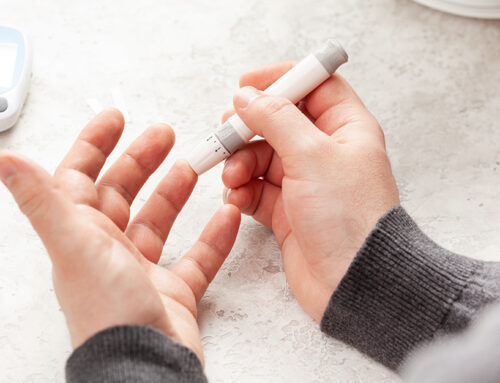
It’s a constant refrain: We’re too stressed out. But how stressed out are we really? An adrenal saliva test can tell you whether your cortisol (the stress hormone) is too high or too low, whether your circadian rhythm (the sleep-wake cycle) is normal, and also pin point the cause of your symptoms: adrenal fatigue or high adrenal hormones.
All of these are important when assessing whether your protocol to address Hashimoto’s hypothyroidism is working. Adrenal function plays a big role in thyroid health.
Symptoms of adrenal fatigue
- Fatigue
- Slow to get going in the morning
- Energy crash in the afternoon
- Craving sweets, caffeine, or nicotine
- Unstable behavior; moodiness
- Shaky, light-headed, or irritable if meals are delayed
- Inability to stay asleep
- Dizziness when moving from sitting to standing
Symptoms of high adrenal hormones
- Excess belly fat
- Insulin resistance (high blood sugar)
- Insomnia
- Not feeling rested in the morning
- Women grow facial hair; men grow breasts
- PCOS in women (polycystic ovarian syndrome).
How to use the adrenal saliva test
The adrenal saliva test requires you to collect a small vial of saliva several times throughout the day. Adrenal stress is always caused by something else, such as unstable blood sugar, a chronic infection, or an autoimmune disease. So the importance of the adrenal saliva test is that it allows us to track the progress of a protocol.
One test is a good place to start, but the second and third tests tell us if we’re on the right track with a protocol for Hashimoto’s hypothyroidism; adrenal health should improve as conditions resolve. If things do not improve, it means we must dig deeper to find out what is taxing the body.
Measuring the circadian rhythm
An abnormal sleep-wake cycle, or circadian rhythm, is one symptom of adrenal stress. A normal circadian rhythm shows high cortisol in the morning and low cortisol at night. This makes us alert when we wake up and tired before bed. For many, this rhythm is backwards, causing fatigue in the morning and insomnia at night. In addition, instead of the usual gradual decline throughout the day, cortisol may suddenly drop in the afternoon, causing an energy crash. Addressing circadian rhythm imbalances can help manage Hashimoto’s hypothyroidism.
Use an adrenal saliva test as a tool for Hashimoto’s hypothyroidism
By measuring circadian rhythm, precursor hormones (DHEA and 17 hydroxyprogesterone), and cortisol levels, the adrenal saliva test can tell you whether you are in the “alarm reaction” of high adrenal hormones, in adrenal exhaustion, or somewhere in between. Contrary to popular belief, one does not necessarily progress from alarm reaction to adrenal fatigue; adrenal function can jump around between phases, or stay in one phase for years.
The adrenal saliva test also measures total SIgA (secretory antibodies). SIgA levels measure the impact of stress on the immune system. When SIgA is low, it means a person is more susceptible to food intolerances, infections, and other assaults on the immune system. This is important to know when managing your Hashimoto’s hypothyroidism.
A variety of herbal and nutritional compounds can profoundly influence adrenal function, but they are not the first line of defense. You and your doctor must first ferret out what is causing your adrenal stress and make addressing that a priority. Only then is adrenal support appropriate. Addressing adrenal function and Hashimoto’s hypothyroidism simultaneously can help improve the function of both systems.
Ask my office how you can support your adrenal health.





